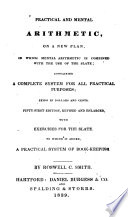 | Roswell Chamberlain Smith - 1839 - 308 pages
...Progression there r.re reckoned 5 terms, any three of which being given, the remaining two may be found, viz. 1. The first term. 2. The last term. 3. The number of terms. 4. The common difference. 5. The sum of all the tenus. The First Term, the Last Term, and the Number of Terms,... | |
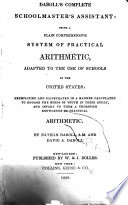 | Nathan Daboll - 1839 - 220 pages
...first and last terms o£ which are called the extremes. A series in progression includes five parts, viz, : 1. The first term. 2. The last term. 3. The number of terms. 4. The common difference. 5. The sum of all the terms : by having any three of which given, the other two... | |
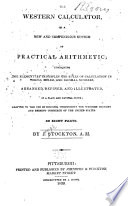 | Joseph Stockton - Arithmetic - 1839 - 218 pages
...and 3-f 15=18, or 6 + 12 = 18. In arithmetical progression five things must be carefully observed, viz. 1. The first term, 2. The last term, . 3. The number of terms, 4. The equal difference, 5. The sum of all the terms. Case 1. The first term, common difference, and number... | |
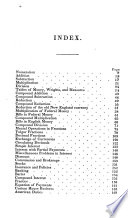 | Benjamin Greenleaf - Arithmetic - 1839 - 356 pages
...other terms, the means. Any three of the five following things being given, the other two may be found. 1. The first term. 2. The last term. 3. The number of terms. 4. The common difference. 5. The sum of the terms. PROBLEM I. The first term, last term, and the number of... | |
 | Roswell Chamberlain Smith - Arithmetic - 1841 - 324 pages
...like Arithmetical Progression, any three of them being given, the other two may be found, viz : — 4. 1. The first term. 2. The last term. 3. The number of terms 4 The sum o) all the terms. 5. The ratio. 5. A man purchased a flock of sheep, consisting of 9 ; and by agreement,... | |
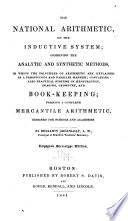 | Benjamin Greenleaf - Arithmetic - 1841 - 334 pages
...terms, the mean*. Any three of the five following things being given, the other two may be found. ' ^ 1. The first term. 2. The last term. 3. The number of terms. 4. The common difference. 5. The sum of the terms. PROBLEM L The first term, last term, and the number of... | |
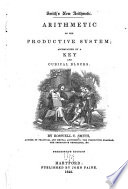 | Roswell Chamberlain Smith - Arithmetic - 1842 - 320 pages
...Arithmetical Progression, any three of 'them being given, the other two may be found, viz : — 4. 1. The first term. 2. The last term. 3. The number of terms. 4. The sum of all the terms. 5. The ratio. 5. A man purchased a flock of sheep, consisting of 9 ; and by agreement,... | |
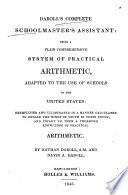 | Nathan Daboll - Arithmetic - 1843 - 254 pages
...first and last terms ojF .which are called the extremes. A series in progression includes five parts, viz. : 1. The first term. 2. The last term. 3. The number of terms. 4. The common difference. 5. The sum of all the terms : by having any three of which given, the other two... | |
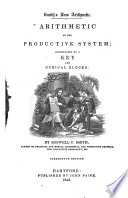 | Roswell Chamberlain Smith - Arithmetic - 1843 - 320 pages
...Arithmetical Progression, any three of them being given, the other two may be found, viz :— * 4. 1. The first term. 2. The last term. 3. The number of terms. 4. The sum of all the terms. 5. The ratio. 5. A man purchased a flock of sheep, consisting of 9 ; and by agreement,... | |
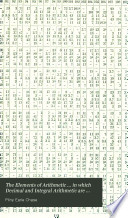 | Pliny Earle Chase - 1844 - 258 pages
...common difference is 4. Any three of the five following things being given, the other two may be found : 1. The first term. 2. The last term. 3. The number of terms. 4. The common difference. 5. The sum of all the terms. PROBLEM I. One of the extremes, the common difference,... | |
| |